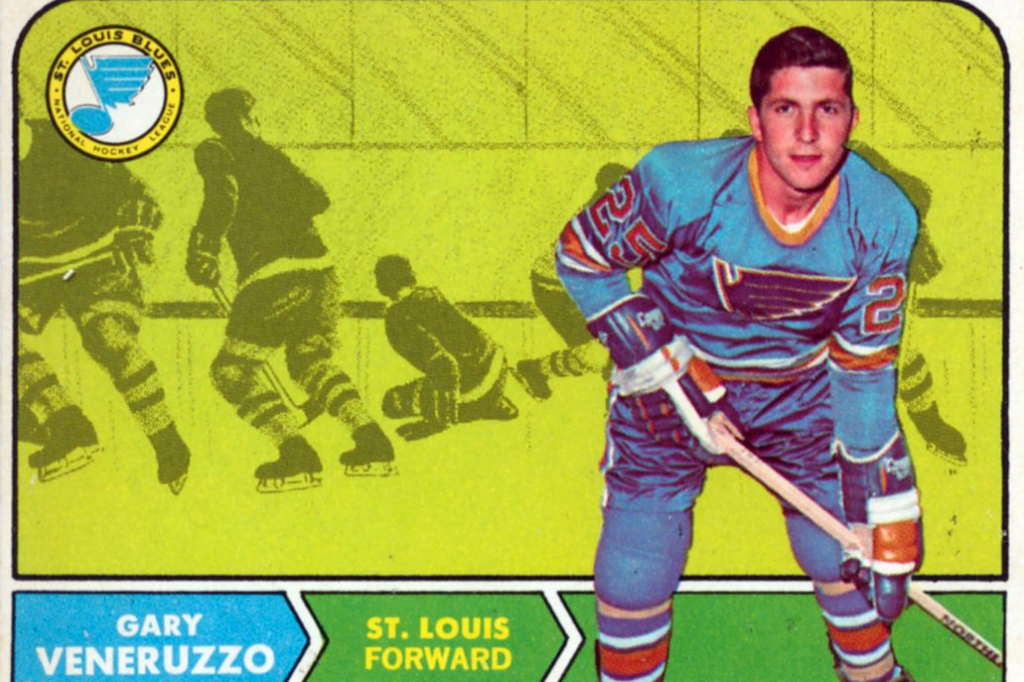 HAVING researched the careers of many of the talented players who have called the Lakehead home, their achievements continually draw admiration.
HAVING researched the careers of many of the talented players who have called the Lakehead home, their achievements continually draw admiration.
As part of this distinguished contingent over the decades, Gary Veneruzzo certainly earned his membership amongst this assemblage.
A standout at an early age, he made his initial foray into junior hockey as a 15-year-old for Mickey Hennessy’s Fort William Columbus Canadiens squad.
A star with the club, the highly-skilled forward topped the Thunder Bay Junior Hockey League in scoring during the 1961-62 campaign while earning Most Valuable Player laurels.
Showing his versatility the following season, Veneruzzo not only played for the Canadiens, but also skated with the Fort William Beavers senior side and paced them in offensive production at just 19 years of age.
His efforts with the Beavers earned him the senior loops’ top rookie honours.
Competing in both Memorial Cup and Allan Cup playdowns with each respective team during his final two years locally, saw him pile-up 60 points in a combined 36 postseason outings, including notching 28 tallies.
While performing at over a point-per-game clip while residing at home, next came a move away to the professional ranks.
His first three pro campaigns were with the Central Hockey League’s Tulsa Oilers, a farm club for the Toronto Maple Leafs, who owned his NHL rights.
His coach during that stint turned out to be another local legend, Rudy Migay.
Despite being a solid contributor with Tulsa over that time frame, June of 1967 saw him left unprotected by the Leafs and get scooped up by the freshly-trumpeted St. Louis Blues in the NHL Expansion Draft.
He was joined by a list of others from the head of Lake Superior who were tabbed by various new teams in the league, including the likes of Larry Cahan, Joe Szura, Ron Schock and Pete Goegan.
That meant a move over to the Kansas City Blues for Veneruzzo, an affiliate squad of the big club.
He starred in K.C., from the onset, leading the squad in both assists and points with 51 and 75 respectively in Year 1.
Not going unnoticed, St. Louis called him up in February of ’68, where he made his NHL debut against the Pittsburgh Penguins.
Collecting his first point, with an assist, in a 5-1 road win at Toronto on Feb. 21, Veneruzzo then notched his one and only NHL goal four nights later, in Los Angeles, in a setback against the Kings.
Racking up over 200 points in Kansas City, it helped him earn a trip to the American Hockey League where he won a Calder Cup championship with the Buffalo Bisons in 1970 and scored a goal in the finale.
Later came a trek out west to the old Western Hockey League where he led the Seattle Totems and Denver in goals scored in back-to-back years and was a 1st Team All-Star in 1972.
This went with the same accolades he picked up in Kansas City previously.
This helped him get taken by the Los Angeles Sharks in the 1972 World Hockey Association player draft.
A two-time WHA All-Star selection, the gifted goal-scorer and point contributor suited up with such clubs as the Sharks, Michigan Stags, Cincinnati Stingers, Phoenix Roadrunners and San Diego Mariners over his tenure there.
Of note, no other player from the Lakehead had more points in the WHA than Veneruzzo.
His 274 in 348 match-ups, featuring 151 goals, placed him 56th overall in league history.
Wrapping up his playing career back home with the Thunder Bay Twins, he did with them what he managed throughout his time in the game, and that was contribute offensively.
Playing over 1,000 games in his time on the ice, and amassing 964 points in total, with 400-plus markers and assists apiece, Gary Veneruzzo provided a skill-set that was exceptional.
This in turn later earned him induction into the Northwestern Ontario Sports Hall of Fame, back in September of 2000, in recognition of his stellar career.
Veneruzzo was versatile
 From being a standout locally in junior and senior hockey, as well as later playing in both the NHL & WHA, Gary Veneruzzo was an extremely versatile player throughout is entire career. 1968-69 Topps rookie card image courtesy Hilary Kazsor.
From being a standout locally in junior and senior hockey, as well as later playing in both the NHL & WHA, Gary Veneruzzo was an extremely versatile player throughout is entire career. 1968-69 Topps rookie card image courtesy Hilary Kazsor. 